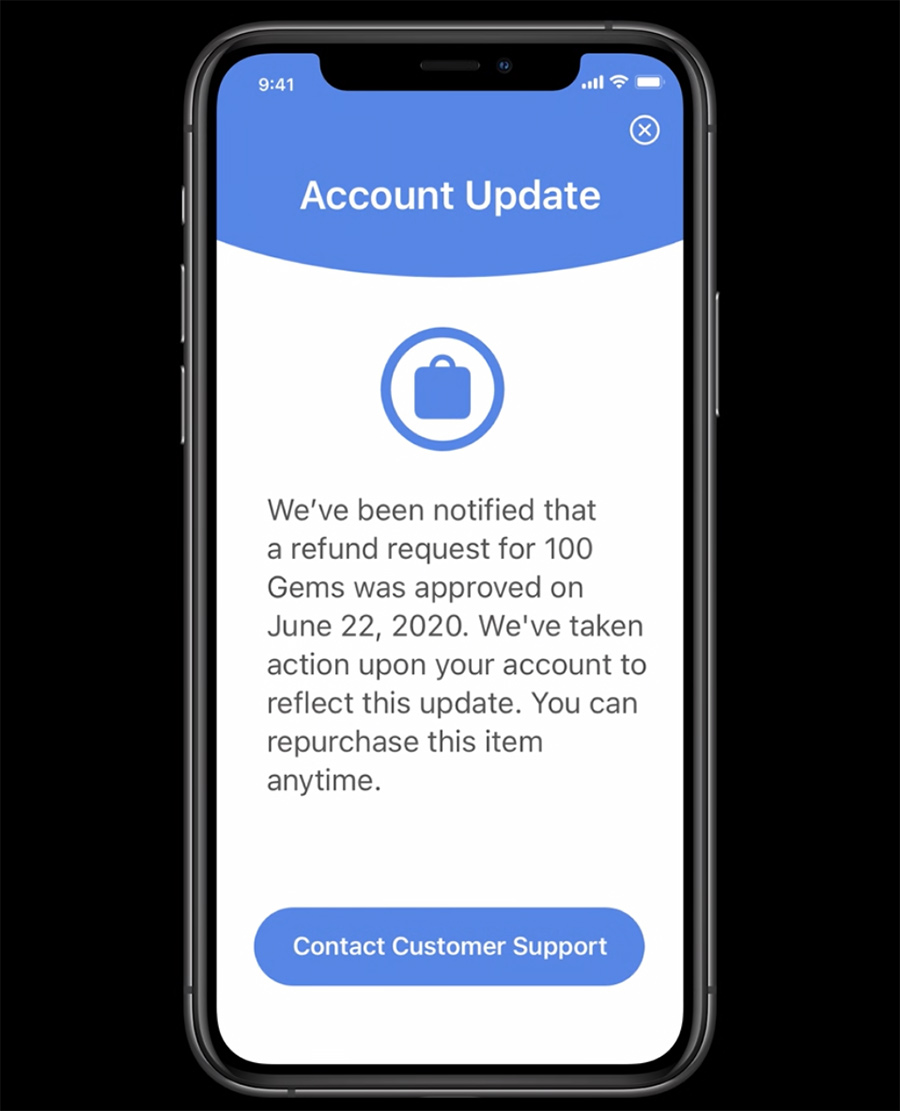
Apple is introducing a new in-app purchase server notification system that lets developers know when a customer requests and receives a refund for an in-app purchase, allowing the developer to take an appropriate action, such as revoking the purchased item.

Developers are not involved in Apple's refund process, which is handled by the company. Prior to now, when a user requested and received a refund for an in-app purchase, developers were not notified about the refund, leading to situations where customers could get a refund for a purchase and keep the in-app purchase.
It also caused issues with customer support as there was no clear communication between Apple and the developer in respect to in-app purchases.
In iOS 14, when a customer receives a refund for an in-app purchase, developers will receive a server notification and updated receipts with canceled transactions. From there, the developer can alert the customer about the refund and take the appropriate steps to remove the content.
Apple says that these changes will give developers more control over customer interactions, making gameplay more fair for all players and protecting the app's economy. Apple believes the notification system will also make it clear to players who have used refunds in this way that there are repercussions for refunds and that items won't be able to be kept.
Apple's refund notification system is live for developers as of today, and more details can be found in Apple's "What's new with in-app purchases" session that's available on the Apple Developer website.
Article Link: Apple Now Letting Developers Know When Customers Request In-App Refunds to Prevent Scams

